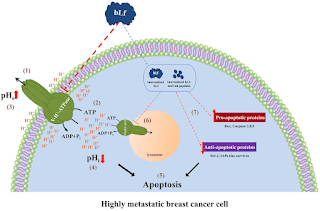Top And Pro Tips For Understanding The Mechanisms Of Breast Cancer
Much research has been done to understand the mechanisms and pathogenesis of breast cancer. However, since scientists do not yet understand the exact cause of breast cancer, it is difficult to predict who will develop it. However, some risk factors put a person at higher risk than others. These include a personal history of breast cancer, family history, age, gender, previous radiation therapy, hormone therapy, and excessive alcohol consumption.
A new study published in the Journal of Cancer Cell International found that pepsinogen C (PGC), a member of the aspartic protease family and secreted by primary gastric cells, is associated with the development of cancer. Another report published in BMC shows that penetration of the mammary basement membrane by cancer cells is a critical step in the spread from the mammary gland to the surrounding tissue.
These findings also suggest that peptidyl arginine deiminase 2 (PAD2) plays an important role in cancer cell migration and motility. A study of mouse mammary carcinoma in situ showed that inhibition of peptidyl arginine deiminase 2 activity can protect basement membrane integrity in xenograft tumors. Depletion or inhibition of PAD2 can reduce cell migration and alter cell morphology and may be a future therapy. How to prevent breast cancer?
There is little we can do to prevent cancer because we do not know the exact cause. However, in light of recent discoveries and awareness of the potential causes of cancer, researchers have compiled a list of cancer-fighting foods. Pomegranate is a nutrient-rich fruit that has been used for centuries to prevent and treat various inflammatory diseases.
This has been proven by several studies published in well-known nutritional journals. Some studies show an inverse relationship between vitamin D and breast density. Since breast density is considered a risk factor for breast cancer, monitoring your vitamin D levels may offer a starting point as a prevention strategy. Several studies support the hypothesis that higher premenopausal 25(OH)D and vitamin D levels are associated with breast density. Screens are a constant approach to keeping track of what's inside your body.
Doctors recommend regular check-ups every three years after the age of 40. If you are a person at higher risk, it is recommended to start screening earlier and more often. Controlling your weight, eating a nutritious diet, and limiting alcohol intake are other elements of a cancer prevention strategy.



Comments
Post a Comment